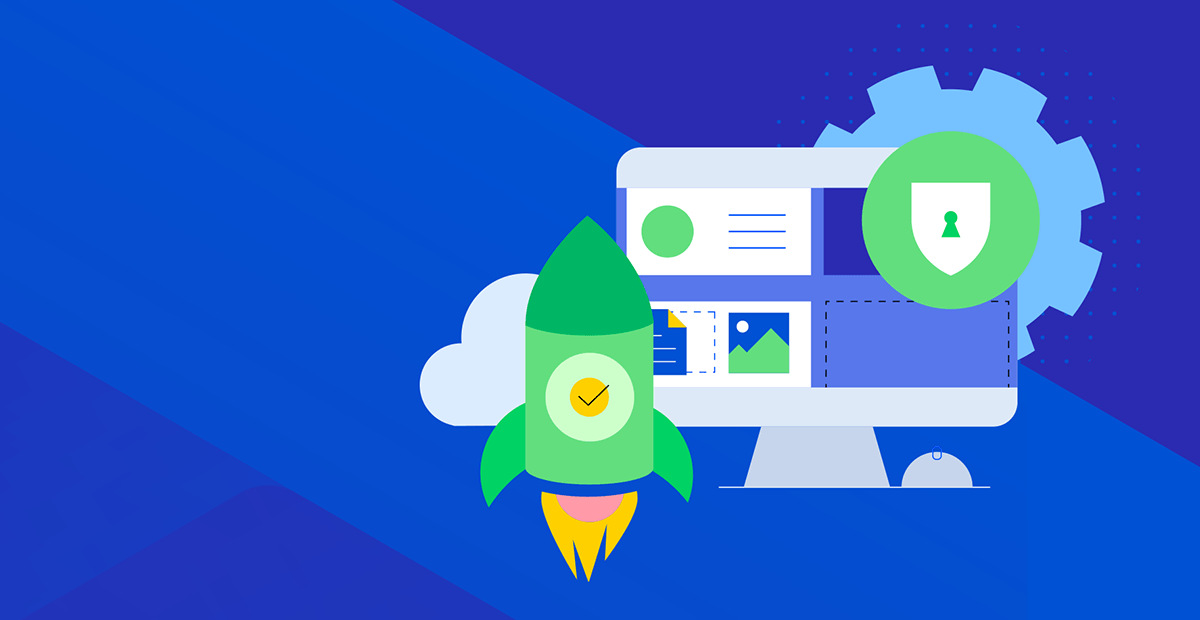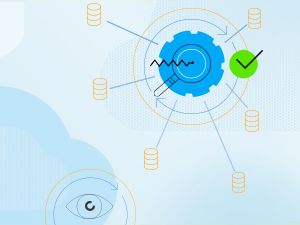Modernization Matters: The Hidden Security Costs of Not Upgrading Mission-Critical Applications

Failure to keep mission-critical applications up to date with the latest versions and security patches can expose organizations to serious security risks and hidden costs, jeopardizing business continuity and reputation.
Mission-critical applications are those that are essential for the operation and survival of an organization. They include software that supports core business functions, such as accounting, inventory, customer service and e-commerce. These applications often store and process sensitive and valuable data, such as customer information, financial records and intellectual property.
Read on to learn why modernization matters for these crucial applications.
Why Is it Important to Upgrade Mission-Critical Applications?
As technology evolves, so do the methods used by cybercriminals to gain unauthorized access to systems. Outdated mission-critical applications are more vulnerable to cyberattacks, which can lead to data breaches, identity theft and financial losses.
According to the latest Cost of a Data Breach Report 2023 by IBM Security and Ponemon Institute, the global average cost of a data breach in 2023 was $4.45 million, up 15% from 2020. The average time to identify and contain a breach was 287 days, a 7-day increase over 2020. The report also found that complex security environments, remote work and cloud migration were among the top factors that increased the cost and duration of a data breach.
Upgrading mission-critical applications to the latest versions with up-to-date security patches is essential to help protect against security risks. Upgrading can also bring other benefits, such as improved performance, functionality compatibility and user experience.
What Are the Hidden Security Costs of Not Upgrading Mission-Critical Applications?
The hidden security costs of not upgrading mission-critical application software can include the following:
- Remediation: If an organization’s software is out of date and a cyberattack occurs, it will take a lot of time and money to fix the problem. The organization must investigate the cause and extent of the breach, notify the affected parties, restore the data and systems and implement preventive measures. The organization may also have to pay for legal fees, fines or settlements if the breach violates any laws or regulations.
- Reputation damage: Rebuilding trust and restoring the organization’s reputation can be lengthy and costly. The organization may lose customers, partners or investors concerned about data security and privacy. The organization may also face negative publicity and media attention that can harm its brand image and credibility.
- Business continuity: Downtime and lost business continuity can be expensive and negatively impact an organization’s financial stability. The organization may lose revenue, productivity or market share due to disrupted operations or services. The organization may also incur additional costs for backup or recovery solutions or alternative providers.
How Can Organizations Avoid These Hidden Costs?
Organizations that fail to upgrade their mission-critical software regularly put themselves at risk of these hidden costs and should prioritize regular updates and security monitoring to minimize their exposure to these risks.
Some of the best practices for upgrading mission-critical applications include:
- Planning: Organizations should have a clear strategy and timeline for upgrading their mission-critical applications. They should assess their current systems and identify any gaps or vulnerabilities that must be addressed. They should also evaluate the benefits and risks of upgrading and prepare for potential challenges or issues during the process.
- Testing and validating: Organizations should test and validate their upgraded mission-critical applications before deploying them in production. They should perform thorough quality assurance (QA) and user acceptance testing (UAT) to check that the upgraded applications meet their functional and non-functional requirements, such as performance, security, usability and compatibility. They should also conduct regular audits and reviews to verify that the upgraded applications comply with relevant standards or regulations.
Upgrading OpenEdge
With customers’ concerns in mind, Progress OpenEdge continuously releases enhancements and updates (bug fixes and security patches) to support more secure, productive and scalable deployment across platforms, device types and the cloud. Customers not using the OpenEdge 12 series are missing out on the enhanced security, flexibility, scalability, performance and agility necessary to stay ahead of market demands. By upgrading to OpenEdge 12, you can get the latest and greatest for your application, helping to protect you from vulnerabilities that might be lurking.
Next Steps
Upgrading mission-critical applications is essential to keep them running smoothly and efficiently. Upgrading mission-critical applications can provide many benefits, including improved security, increased productivity, lower maintenance costs and better compliance. Failure to upgrade mission-critical applications can lead to greater security risks, reduced productivity, higher maintenance costs and compliance issues.
If you’re on an older OpenEdge version, you may be taking unnecessary risks, leaving you more vulnerable to attack. Establishing a security strategy that includes user authentication, access controls, data encryption, network security, application security and incident response can help keep your OpenEdge-based systems better protected against significant security issues.
Modernize Today
Upgrading mission-critical applications is not only a necessity but also an opportunity to enhance security, performance, functionality, compatibility and user experience. By keeping mission-critical applications up to date with the latest versions and security patches, you can better avoid the hidden costs of not upgrading and gain a competitive edge in the market.

Jessica Malakian
Jessica Malakian is a product marketing specialist at Progress who focuses primarily on Progress OpenEdge. Jessica is a recent college graduate and is excited to begin her professional journey with Progress. Outside of work, Jessica loves reading and writing.
Next:
Comments
Topics
- Application Development
- Mobility
- Digital Experience
- Company and Community
- Data Platform
- Security and Compliance
- Infrastructure Management
Sitefinity Training and Certification Now Available.
Let our experts teach you how to use Sitefinity's best-in-class features to deliver compelling digital experiences.
Learn MoreMore From Progress
Latest Stories
in Your Inbox
Subscribe to get all the news, info and tutorials you need to build better business apps and sites
Progress collects the Personal Information set out in our Privacy Policy and the Supplemental Privacy notice for residents of California and other US States and uses it for the purposes stated in that policy.
You can also ask us not to share your Personal Information to third parties here: Do Not Sell or Share My Info
We see that you have already chosen to receive marketing materials from us. If you wish to change this at any time you may do so by clicking here.
Thank you for your continued interest in Progress. Based on either your previous activity on our websites or our ongoing relationship, we will keep you updated on our products, solutions, services, company news and events. If you decide that you want to be removed from our mailing lists at any time, you can change your contact preferences by clicking here.


